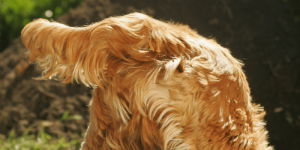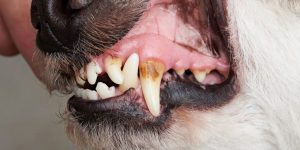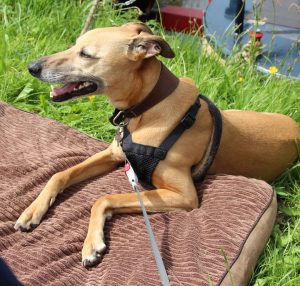Why Does My Dog Smell So Bad?
Most dogs have a distinct odour, some more than others, depending on the breed. Dogs with greasier skin for instance, such as Labradors, tend to have more of characteristic doggy odour. Of course, if you have several dogs in the home, the more likely you are to detect that familiar waft of canine musk. If you have asked yourself, “why does my dog smell so bad?” – read our Holidays4Dogs article to find out more.
If you think your dog is a bit stinky, chances are other people will too. While having a doggy smell is normal, it is also possible that excessive odour could be an indication of an underlying health problem. Therefore, it’s always worth checking the source of any particularly unpleasant and lingering smells emanating from your pet.
Reasons why your dog might be smelly.
Rolling.
Although we humans abhor the habit, dogs just love nothing more than to roll in something nice and smelly. This might be any rotting material, cow pats, or even dog poop. Yuk! However, a dog’s odour is his calling card and whatever he chooses to roll in, is his preferred perfume.
Flatulence.
 Depending on their diet or the health of their intestine, dogs can frequently suffer from flatulence.
Depending on their diet or the health of their intestine, dogs can frequently suffer from flatulence.
If this occurs regularly it may well be worth seeking veterinary advice or changing your dog’s diet.
Some people recommend adding a little bit of live yoghurt to the diet of a flatulent dog. However some dogs have problems digesting milk products, so you could also try soy based live yoghurt.
Charcoal biscuits are another common remedy for a ‘parping’ dog and these are readily available from pet shops.
Diet.
Diets high in carbohydrates and processed dog foods can be a contributing factor to a doggy odour. They are often blamed for contributing to allergies, yeast and fungal infections of the skin. It may be worth discussing your dog’s diet with your vet.
Matted coat.
The hair on long coated dogs can frequently become matted and tangled. It is important to make sure the dog is groomed properly, otherwise dirt can accumulate and cause a musty smell. In addition, bacteria from a dirty coat can often infect the skin. As a result, this can create an unpleasant odour and irritation for the dog.
Ear infection.
Infected ears can cause your dog to smell pretty bad indeed. It is one of the most common reasons for a pungent doggy odour. If your dog frequently scratches his ears and shakes his head, you should take your dog to be examined by the vet. An untreated ear infection will not just cause a bad odour, but can also cause the dog discomfort and pain.
Mouth infection.
A common cause of doggy odour is bad breath and this can be a warning sign of gum disease. Tooth decay, an abscess, or a foreign body stuck in the mouth will all cause the dogs breath to smell.
and this can be a warning sign of gum disease. Tooth decay, an abscess, or a foreign body stuck in the mouth will all cause the dogs breath to smell.
If you trace the dogs smell to his mouth, book him in for a veterinary examination to rule out serious disease, or damage.
To keep teeth and gums healthy in general, provide meaty bones, rawhide chews, or raw vegetables such as carrots.
Anal glands.
This is another common source of a dog that constantly smells bad. The anal sacs are located near to the dog’s anus, which under normal circumstances are squeezed each time the dog has a bowel movement. Sometimes, the anal glands become blocked and infected but secretions leak out onto the dog’s fur causing a very unpleasant odour.
Some breeds suffer with this more than others and a classic sign your dog is having trouble with his anal glands is if he scoots his bottom along the floor. Relieving this problem is a relatively straightforward, albeit unpleasant, procedure. Your vet – (or sometimes a professional groomer) – can do this. The situation can be more complicated if the area becomes infected.
Skin infection.
A typical doggy smell is often related to infections of the skin. This might be due to an over population of bacteria and yeast caused perhaps by an allergy; (see diet section above). It is important that your dog sees a vet, who will be able to diagnose the source of the infection.
Parasites.
Sarcoptic and demodectic mange are both conditions caused by mites. They live either in the skin, (sarcoptic mange) or the hair follicles (demodectic mange). Sarcoptic mange can cause a musky odour and loss of hair while demodectic mange can produce a very foul odour with distinctive hair loss. Baldness starts around the eye area and can spread quickly to the rest of the body.
Bathing.
As odd as it may seem, if you bath your dog too frequently this can remove the dogs natural skin defences and actually cause skin problems and, subsequently, doggy smell. There should be no need to bath your dog often. When you do, always be sure to use a suitable shampoo recommended for dogs – regular brushing and de-matting will keep the fur clean and odour free.
Minimising doggy odour –
• Keeping carpets free from shed hairs will help to keep doggy smells at bay. Avoid using products on the carpet where dogs walk, or sleep. Powder based carpet fresheners can irritate dogs skin, paws and olfactory organs. An alternative is to use baking soda on the carpet, leave overnight and vacuum in the morning. Using rugs at strategic points can also help, especially if these are machine washable.
• Having enough bedding to rotate also helps to minimise doggy odours. Wash and change bedding frequently and sponge, or pressure wash, plastic beds.
• Don’t forget soft dog toys – these sometimes get overlooked, but can often be the source of some unpleasant odours.
• Never spray your dog with perfumes, or air freshener. Instead, many people swear by apple cider vinegar. Just a couple of teaspoons in a mister full of water can be used to deodorise your dog’s coat. It can also help improve dandruff and soothe mild abrasions and insect bites. You can also add some drops of essential oil such as lavender, or chamomile.
Also –
• Brush your dog on a daily basis but do not over bath.
• Consider changing your dog’s diet and/or provide a supplement such as an omega-3 fatty acid. This is said to improve coat and skin condition and help alleviate musty smells.
• If your dog rolls in something smelly, use a shampoo specifically for dogs. Some people swear by rubbing tomato sauce into the coat of a dog that has rolled in fox poop!
• Clean dog’s bowls and utensils every day.
• If there are particular areas in the house that your dog rubs against, such as walls, or door frames, periodically wash these down. It’s particularly important to keep a close eye on your pooch during house training. If things get too grimy consider re-painting.
Above all, make sure the smell is not stemming from a particular part of your dog. If you suspect an ear, mouth, skin, or anal gland infection – it is definitely time to take stinky to the vet.
Always consult your veterinary surgeon for advice and correct diagnoses of the source of unpleasant odour.



